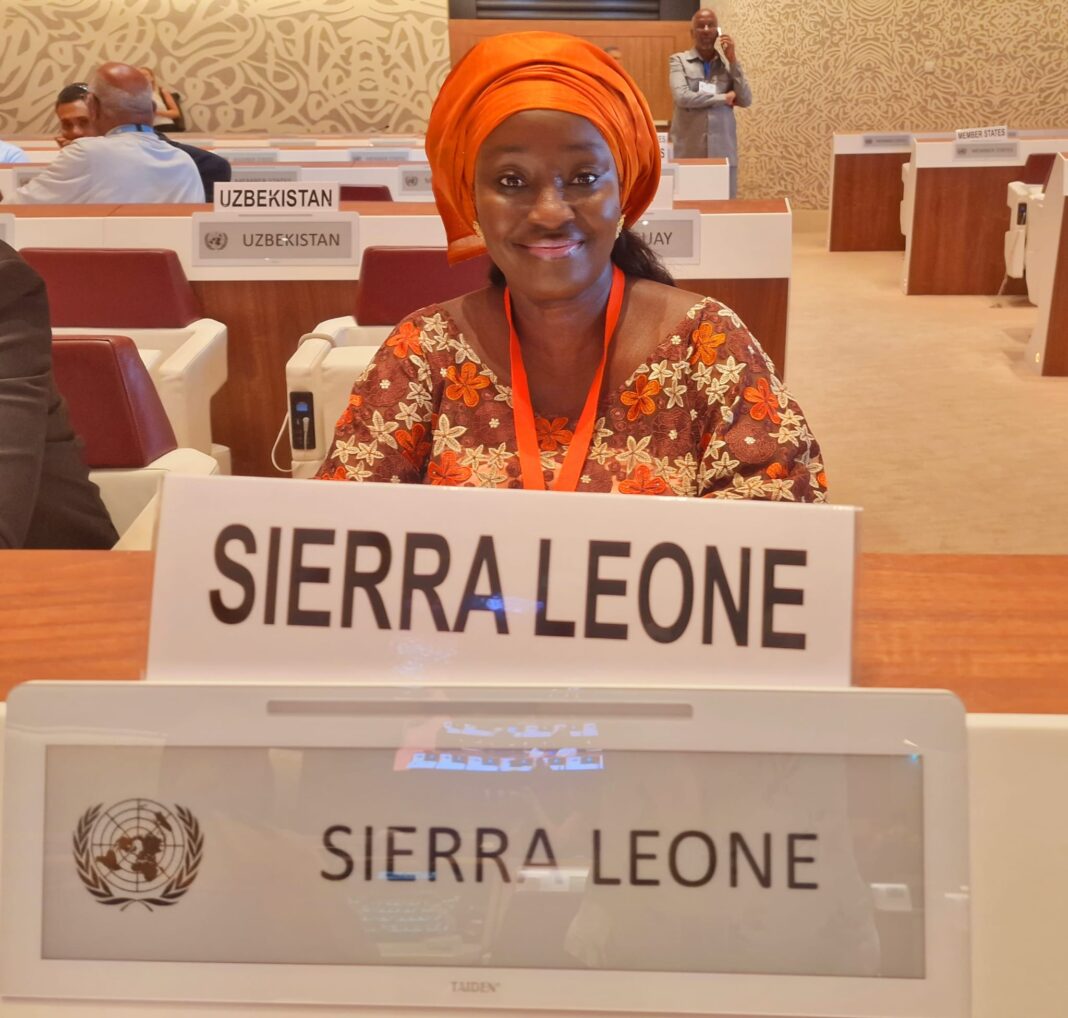Deputy Environment Minister calls for binding international action at UN talks in Geneva
GENEVA, Switzerland — Sierra Leone’s Deputy Minister of Environment and Climate Change, Madam Mima Yeama Sobba-Stephens, has urged world leaders to back a strong, legally binding treaty to tackle plastic pollution, warning that the crisis threatens both the environment and human health.
Speaking on August 13 at the UN Environment Programme’s Informal Ministerial Roundtable in Geneva, Madam Sobba-Stephens said the agreement must be “globally binding and fully implemented within national laws” to have lasting impact.
The roundtable, part of the fifth session of the Intergovernmental Negotiating Committee (INC-5.2) on plastic pollution, brought together high-level representatives to share national challenges, policy gaps, and solutions. The ongoing negotiations aim to produce a historic international treaty addressing the production, use, and disposal of plastics, with a strong focus on marine ecosystems.
Despite limited resources, Madam Sobba-Stephens said Sierra Leone has already taken significant steps, including a baseline assessment of marine litter, a material flow analysis, and a plastic policy gap analysis that produced a strategic roadmap aligned with the treaty’s goals. She also highlighted a new Green Labelling scheme for the hospitality sector to reward tourism operators who reduce single-use plastics.
The Deputy Minister called for the treaty to address the full plastic lifecycle—from upstream production and chemical use to downstream waste management—while recognizing the unequal capacities of countries.
“Let us work together to deliver an ambitious, inclusive, and implementable instrument—one that marks this moment as a historic turning point in the fight against plastic pollution,” she said.
During the Geneva session, Madam Sobba-Stephens also joined the Informal Ministerial Dialogue on investment opportunities for a circular economy in the context of the global plastic treaty.
By Joseph Turay



